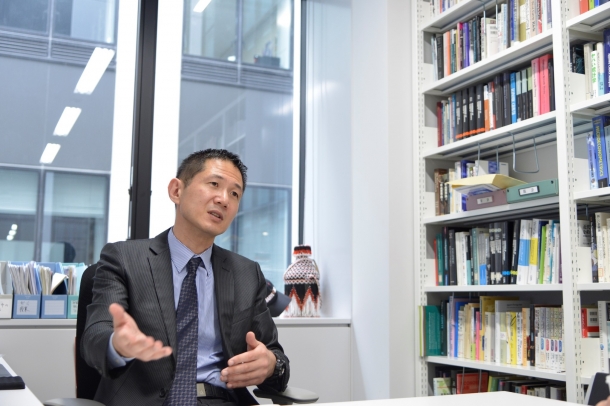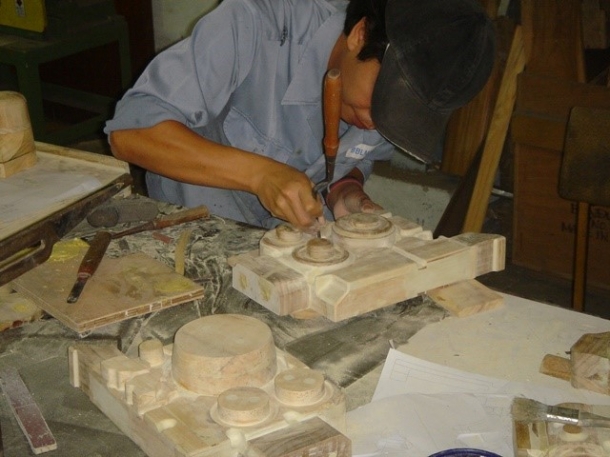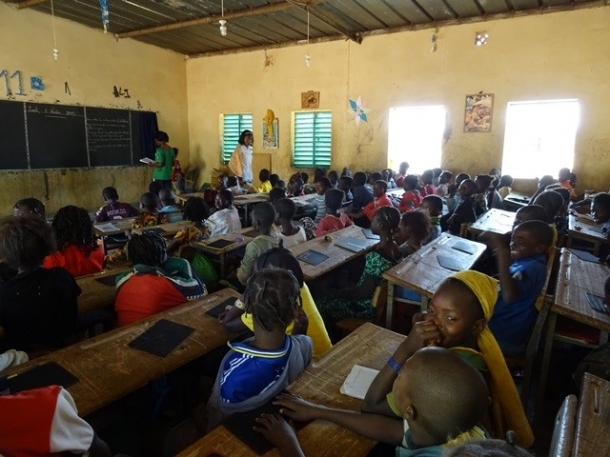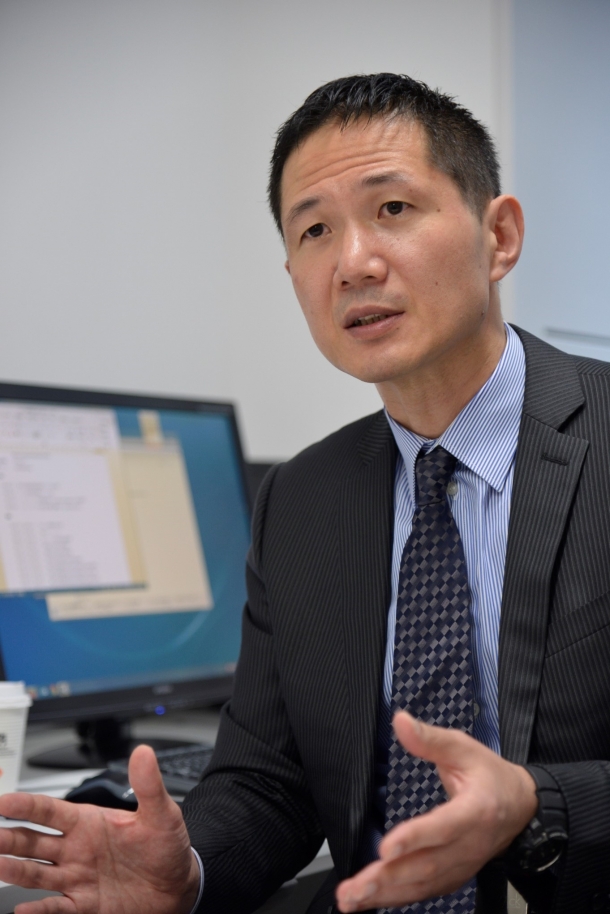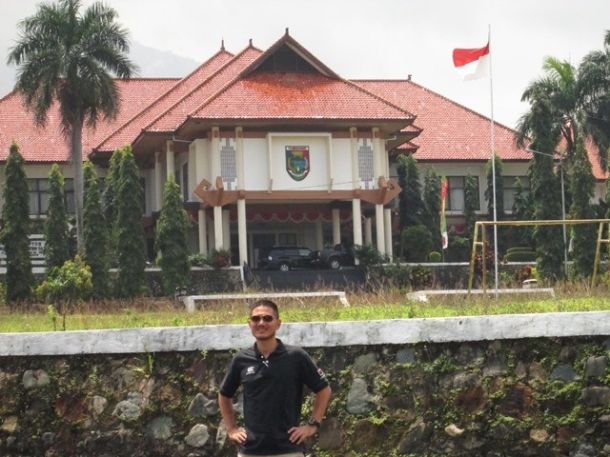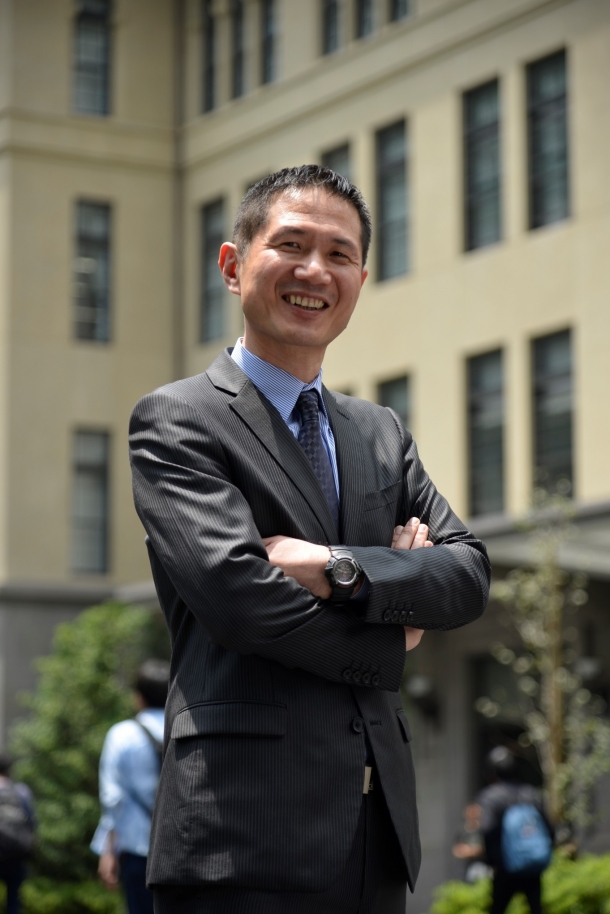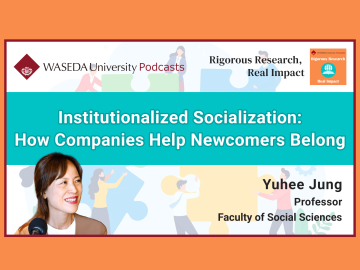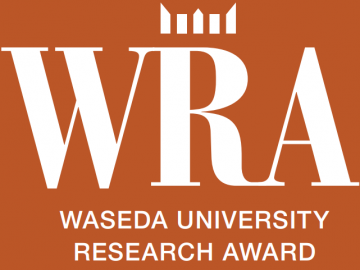International economy and economic development researcher
Professor Yasuyuki Todo
Faculty of Political Science and Economics
Ties between politics and the economy
While some countries do achieve rapid economic growth, others suffer from long-term stagnation. This is because government policies have a large impact on whether economies grow or stagnate. In the case of developing countries, official development assistance (ODA) from developed countries also plays a major role. However, Professor Todo believes that excessive ties between government and business could undermine the diverse ties necessary for growth and lead to economic stagnation. In part two of this volume of Frontline Research, Professor Todo refers to his own research projects to speak about international cooperation and the ties between politics and the economy.
The role of international cooperation in the economic development of developing countries
It has long been argued whether ODA projects actually help developing countries achieve economic growth and reduce poverty. However, measuring the effectiveness of these projects is more difficult than most assume.
Let us think of a scenario where talented athletes are selected to compete in the Olympics and participate in special training programs. Even if the athletes win medals, it is unclear as to what actually helped them win: the training program or their own capabilities. This is the same for ODA projects. If a project team consists solely of people with great potential, it is very difficult to separate the project’s effectiveness from the capabilities of the participants.
However, using econometrics, there are ways to accurately measure the effectiveness of projects by separating these two factors. One of these approaches is called “matching.” As the name suggests, this approach matches one group not involved with the project but with similar capabilities to project participants and measures the effectiveness of said project by comparing the two groups.
I have used this matching approach in my own research and found that technical cooperation projects conducted by the Japan International Cooperation Agency (JICA) in Indonesia’s manufacturing industry were producing remarkable results. This may be the first such effort toward the quantitative impact assessment of JICA projects.
Another approach is randomized controlled trials (RCT). RCT is a method to measure the effectiveness of projects by randomly allocating project participants and non-participants so that comparisons can be made after matching the average capabilities of both groups. This method is often used to analyze the efficacy of medicine.
JICA conducted its first RCT-based impact assessment in 2010, on the “School for All Project” led by University of Tokyo Professor Yasuyuki Sawada in the West African country of Burkina Faso. Approximately 300 elementary schools were randomly divided into two groups. In one group, a school management committee made it possible for local residents to get actively involved in school management.
The research revealed that the project not only had a positive impact on the children’s education but also contributed to the development of mutual trust between local residents and an informal financial system within the local community.
In Burkina Faso and other least less-developed countries (LLDC), some factors behind economic stagnation are the immature markets and insufficient law enforcement by the government. Our research suggested that enhancing the community’s capabilities can make up for the government’s flaws, and that international cooperation for projects in which residents participate can strengthen such communities.
Strong ties between government (politics) and businesses (economy) cause economic stagnation
I am currently working on an empirical analysis of the interaction between politics and economy in middle-income countries. You may have heard of the “middle income trap” – an economic situation where a developing county grows out of the LLDC classification and attains middle income, only to be stuck at that level and be unable to transform into a developed country.
I believe that when ties within a developing country become too strong, people become less willing to work with foreigners. Diverse ties do not form and the community does not attain diverse knowledge, resulting in economic stagnation. When an economy slows down, there is a protectionist tendency to blame foreign countries, and this pushes people to become isolationist. Once this vicious cycle begins, the country becomes locked into a trap and will have difficulty getting out of it.
I am now conducting an experimental study by implementing research projects in Indonesia and Vietnam based on the hypothesis that ties between politics and businesses are one of the causes of a vicious cycle of isolationism and economic stagnation. By doing this research and collecting corporate data, I have also collected individual data through interviews with business owners. During interviews, I ask questions that measure the personal ties between business owners and politicians as well as their awareness of globalization.
Preliminary empirical analysis indicated that when business owners have stronger political ties, they are more susceptible to protectionism, suggesting the possibility of a vicious cycle of economic stagnation as described above.
One way to break a vicious cycle is to build ties with outsiders. As part of a social experiment during my research in Vietnam, I implemented training programs for small and medium-sized businesses to promote exports. Using this experiment, I want to examine whether ties between companies that have succeeded in exports, and government institutions responsible for export promotion, will make other companies more open to the global economy and encourage them to start exporting.
This research still has a long way to go. The project was initially launched by a research team of political scientists and historians at the National Graduate Institute for Policy Studies. My subsequent transfer to the Faculty of Political Science and Economics at Waseda University has provided me an ideal environment to interact with talented political scientists on a daily basis. An infrastructure for carrying out academic research is gradually developing and I am determined to get involved in new research projects that go beyond the framework of economics.
Profile
1991: B. A., Asian Studies, University of Tokyo
1994: Graduated from Institute of Developing Economies Advanced School
1995: M.A., Food Research Institute, Stanford University
2000: Ph.D., Economics, Stanford University
2000: Assistant Professor, Department of Economics, Southern Illinois University
2001: Lecturer, Faculty of Economics, Tokyo Metropolitan University
2002: Assistant Professor, Faculty of Economics, Tokyo Metropolitan University
2005: Assistant Professor, School of International Politics, Economics and Business, Aoyama Gakuin University
2007: Associate Professor, Graduate School of Frontier Sciences, University of Tokyo
2010: Professor, Graduate School of Frontier Sciences, University of Tokyo
2012: Department Head, Graduate School of Frontier Sciences, University of Tokyo
2014-present: Professor, Graduate School of Economics, Faculty of Political Science and Economics, Waseda University
Currently serving as Faculty Fellow at the Research Institute of Economy, Trade and Industry, Visiting Fellow at the JICA Research Institute, member of the Governing Council of the Japan External Trade Organization, member of the Performance Evaluation Committee of The Overseas Human Resources and Industry Development Association, and member of the Trade Committee of the Industrial Structure Council at the Ministry of Economy, Trade and Industry.
Personal website http://www.f.waseda.jp/yastodo/index.html
Research
・Todo, Yasuyuki, Kentaro Nakajima, and Petr Matous, “How Do Supply Chain Networks Affect the Resilience of Firms to Natural Disasters? Evidence from the Great East Japan Earthquake,” Journal of Regional Science, 55(2), 209-229, 2015. DOI: 10.1111/jors.12119
http://www.cirje.e.u-tokyo.ac.jp/research/workshops/emf/paper2013/emf0527.pdf
http://onlinelibrary.wiley.com/doi/10.1111/jors.12119/full
・Todo, Yasuyuki and Hitoshi Sato, “Effects of Presidents’ Characteristics on Internationalization of Small and Medium Firms in Japan,” the Journal of Japanese and International Economices, 34, pp. 236-255, 2014.
http://www.sciencedirect.com/science/article/pii/S0889158314000483
・Matous, Petr, Yasuyuki Todo, Tatsuya Ishikawa, “Emergence of Multiplex Mobile Phone Communication Networks across Rural Areas: An Ethiopian Experiment,” Network Science, 2(2), 162-188, 2014.
http://dx.doi.org/10.1017/nws.2014.12
・Takahashi, Ryo and Yasuyuki Todo, “The Impact of a Shade Coffee Certification Program on Forest Conservation: A Case Study from a Wild Coffee Forest in Ethiopia,” Journal of Environmental Management, 130(30), 48-54, 2013.
http://www.sciencedirect.com/science/article/pii/S0301479713005483
・Todo, Yasuyuki, “Impacts of Aid-Funded Technical Assistance Programs: Firm-Level Evidence from the Indonesian Foundry Industry,” World Development, 39(3), pp. 351-362, 2011.
http://econpapers.repec.org/paper/etidpaper/08024.htm
http://www.sciencedirect.com/science/article/pii/S0305750X10001415
・Todo, Yasuyuki and Satoshi Shimizutani, “Overseas R&D Activities and Home Productivity Growth: Evidence from Japanese Firm-Level Data,” Journal of Industrial Economics, 56(4), pp. 752-777, 2008.
http://www.rieti.go.jp/jp/publications/dp/07e008.pdf
http://onlinelibrary.wiley.com/doi/10.1111/j.1467-6451.2008.00363.x/full
・Todo, Yasuyuki and Koji Miyamoto, “Knowledge Spillovers from Multinational Enterprises and the Role of R&D Activities: Evidence from Indonesia,” Economic Development and Cultural Change, 55(1), pp. 173-200, 2006.
http://papers.ssrn.com/sol3/papers.cfm?abstract_id=668508
http://www.jstor.org/stable/10.1086/505729
Writings
・開発経済学入門,新世社,2015
・日本経済の底力-臥龍が目覚めるとき-,中央公論新社,2011.
・途上国化する日本,日本経済新聞出版社,2010.
・技術伝播と経済成長-グローバル化時代の途上国経済分析-, 勁草書房, 2008.
Articles
・“Economic Networks for More Innovative and Resilient Economies,” June 26, 2015, Vox.
・“From Collusion to Competition? Japanese Business Groups in the 21st Century,” June 16, 2015, Vox.
・「サプライチェーンを通じた知識伝播-遠くのつながりと強いつながりの効果-」,経済産業研究所ウェブサイト,2015.
・「TPPの成長効果推計」,経済産業研究所ウェブサイト,2013.
・「TPP参加の意義 国際化、生産性向上の鍵に」,日本経済新聞「経済教室」,2011.
・「復興を超えた新たな高度成長へ」,経済産業研究所ウェブサイト,2011.
・「日本経済体質強化の方向 今こそ『内需より輸出』で」,日本経済新聞「経済教室」,2009.

